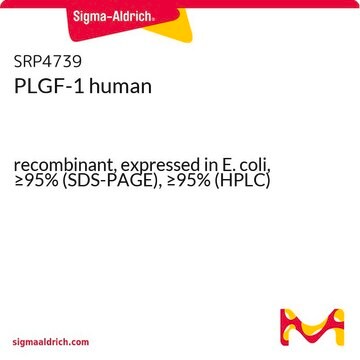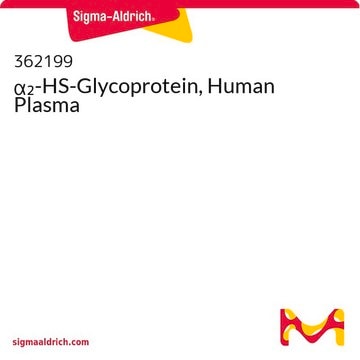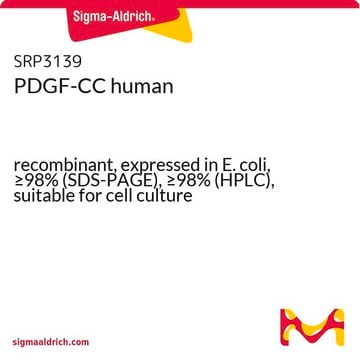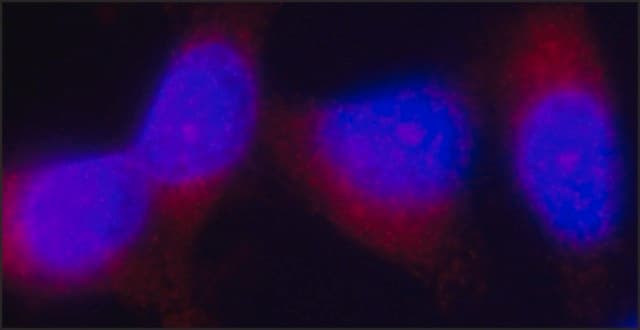SRP3144
PLGF-3 human
≥95% (SDS-PAGE & HPLC), recombinant, expressed in E. coli, lyophilized, suitable for cell culture
Synonym(s):
PGFL, Placenta Growth Factor-3
About This Item
Recommended Products
product name
PLGF-3 human, recombinant, expressed in E. coli, ≥95% (SDS-PAGE), ≥95% (HPLC), suitable for cell culture
biological source
human
recombinant
expressed in E. coli
Assay
≥95% (HPLC)
≥95% (SDS-PAGE)
form
lyophilized
potency
5.0-50.0 ng/mL
mol wt
45.7 kDa
packaging
pkg of 25 μg
technique(s)
cell culture | mammalian: suitable
impurities
<0.1 EU/μg endotoxin, tested
color
white
UniProt accession no.
shipped in
wet ice
storage temp.
−20°C
Gene Information
human ... PGF(5228)
General description
Recombinant human PlGF-3 is a 45.7kDa disulfide-linked homodimeric protein of two 203 amino acid polypeptide chains.
Biochem/physiol Actions
Sequence
Physical form
Reconstitution
Storage Class Code
11 - Combustible Solids
WGK
WGK 3
Flash Point(F)
Not applicable
Flash Point(C)
Not applicable
Certificates of Analysis (COA)
Search for Certificates of Analysis (COA) by entering the products Lot/Batch Number. Lot and Batch Numbers can be found on a product’s label following the words ‘Lot’ or ‘Batch’.
Already Own This Product?
Find documentation for the products that you have recently purchased in the Document Library.
Our team of scientists has experience in all areas of research including Life Science, Material Science, Chemical Synthesis, Chromatography, Analytical and many others.
Contact Technical Service







